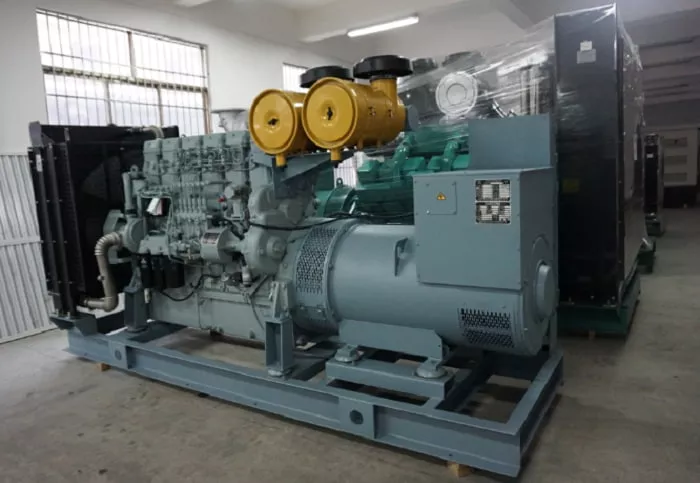Diesel generators are widely recognized as reliable and efficient sources of power in various applications, from industrial to residential use. Understanding the reasons behind their popularity can help clarify why they are often the go-to choice for power generation. This article delves into the key factors that make diesel generators a preferred option.
1. Reliability and Durability
1.1 Proven Track Record
Diesel generators have a long-standing reputation for reliability and durability. They are designed to withstand harsh operating conditions and continue to function efficiently, making them ideal for critical applications where uninterrupted power supply is essential.
1.2 Longevity
Diesel engines are known for their long lifespan. With proper maintenance, a diesel generator can operate for decades, providing a consistent power supply. This longevity is due to the robust construction of diesel engines, which are built to handle high loads and continuous operation.
2. Fuel Efficiency
2.1 Energy Density
Diesel fuel has a higher energy density compared to gasoline and other fuels, meaning it can generate more power per unit of fuel. This efficiency translates to lower fuel consumption and longer running times, making diesel generators cost-effective in the long run.
2.2 Fuel Economy
Diesel engines are more fuel-efficient than their gasoline counterparts. They convert a higher percentage of fuel into usable energy, reducing the overall fuel cost and making them an economical choice for power generation.
3. Performance and Power Output
3.1 High Torque and Power
Diesel generators produce high torque at low RPMs, which results in greater power output and the ability to handle large loads. This makes them suitable for heavy-duty applications, such as powering industrial equipment, construction sites, and large commercial facilities.
3.2 Load Handling Capability
Diesel generators excel in handling sudden increases in load without compromising performance. They are designed to respond quickly to changes in power demand, ensuring a stable and reliable power supply.
4. Safety and Storage
4.1 Lower Risk of Fire
Diesel fuel is less flammable than gasoline, reducing the risk of fire during storage and operation. This inherent safety feature makes diesel generators a safer choice, especially in environments where fire hazards must be minimized.
4.2 Easy Storage and Availability
Diesel fuel is widely available and can be stored for longer periods without significant degradation. This accessibility and ease of storage make diesel generators practical for remote locations and emergency backup power systems.
see also: How Much Does It Cost to Run a Diesel Generator?
5. Maintenance and Serviceability
5.1 Simple Maintenance
Diesel generators require less frequent maintenance compared to gasoline generators. Their simpler design, without the need for spark plugs and complex ignition systems, makes them easier to maintain and service.
5.2 Readily Available Parts
The widespread use of diesel engines means that replacement parts and service expertise are readily available. This accessibility simplifies maintenance and repairs, ensuring that diesel generators can be quickly restored to operation in the event of a malfunction.
6. Environmental Considerations
6.1 Emission Standards
Modern diesel generators are designed to comply with stringent emission standards, reducing their environmental impact. Advances in diesel technology have led to cleaner combustion and lower emissions of pollutants such as nitrogen oxides (NOx) and particulate matter.
6.2 Biofuel Compatibility
Diesel generators can run on biodiesel, a renewable and cleaner alternative to traditional diesel fuel. Using biodiesel reduces the carbon footprint of diesel generators and supports the transition to more sustainable energy sources.
7. Versatility and Adaptability
7.1 Wide Range of Applications
Diesel generators are used in a variety of applications, from providing backup power for homes and businesses to serving as the primary power source in remote locations. Their versatility makes them suitable for diverse power generation needs.
7.2 Scalability
Diesel generators can be scaled up or down to meet specific power requirements. Whether a small portable unit for residential use or a large industrial-grade generator, diesel generators offer flexible solutions for different power demands.
Conclusion
Diesel generators are the preferred choice for power generation due to their reliability, fuel efficiency, high performance, safety features, ease of maintenance, environmental considerations, and versatility. Their proven track record of durability and longevity ensures that they can handle demanding conditions and provide consistent power over time.
Furthermore, diesel generators’ fuel efficiency and high energy density mean lower operational costs, making them an economical choice. Their capability to generate high torque and power output allows them to handle large loads and respond swiftly to changes in power demand, making them indispensable in heavy-duty applications.
In conclusion, diesel generators offer a blend of reliability, efficiency, safety, and versatility that makes them a favored choice for power generation. Whether for industrial, commercial, or residential use, understanding these benefits helps in making informed decisions about power solutions that meet specific requirements effectively.
Related topics:
- 5 Best Whole House Diesel Generator
- How Much Diesel Is Needed to Run a Generator?
- Top 4 Portable Diesel Generator

